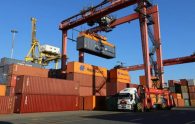
Watch the video to understand more about the mobile industry’s milestone ambition, and what it’s already doing to decarbonise itself and others
Connecting the world to tackle climate change…
The mobile industry is at the forefront of the digital revolution, delivering impact through global initiatives. Our leaders are driving carbon reduction both within the industry and enabling other industries to follow suit, through smart connected technologies.
We are proud to have been recognised by the UN’s ‘Race To Zero’ campaign as one of the sectors first to ‘Breakthrough’ on net zero by 2050 targets. And two thirds of mobile network operators by revenue are committed to rapidly reduce their whole value chain emissions by 2030.
There is much to transform. Countries must go further, urgently, and no country should be left behind without the opportunity to deliver climate action that creates jobs, cuts emissions and protects from climate change impacts.
This requires strong and effective global partnerships, and we’re ready to engage governments, investors and innovators. Discover what action is already being taken and what we need to reach our goals…

In February 2019, the GSMA Board comprising members from the largest mobile network operators in the world, set a milestone ambition – to transform the mobile industry to reach net zero carbon emissions by 2050, at the latest. Mobile operators are now taking action to reduce their carbon footprint and their impact on the climate…
Case Studies

Lenovo Case Study
Read Lenovo’s ambitious plan to remove 1 million tonnes of green house gas emissions from its supply chain by 2025/26.

To achieve net zero by 2050 the energy sector needs to halve emissions by 2030. To achieve this, innovative approaches to manage supply and demand are needed to accelerate the transition from an energy system 84% dependent on fossil fuels, to one that runs on renewable power. Connected technology will be essential to providing the backbone infrastructure for this…
Case Studies

KPN Case Study
Find out how KPN is accelerating the deployment of tailored corporation battery projects.

The manufacturing sector currently accounts for more than 16 gigatonnes of CO2 per year. That equates to roughly one third of total global emissions. To reach the 2050 net zero target the manufacturing sector needs to halve emissions in the next ten years. Mobile connectivity has the ability to help the sector reach this goal…
Case Studies

Foxconn Case Study
Foxconn Industrial Internet (Fii)'s lights-off factory in Shenzhen China, is only one of a select few "Manufacturing Lighthouses" in the world.

Telefonica Germany Case Study
Telefonica Germany has implemented the world's first 5G mobile network for automobile production for Mercedes Benz.

The transport sector is a key challenge on the journey to net zero. Moving towards a sustainable model for transport systems and having a more connected society that can travel less is imperative. The GSMA estimates investment in the digital infrastructure to support more sustainable travel could save 2.8 gigatonnes of CO2 by 2030…
Case Studies

Rail Cargo Group Case Study
With the A1 Digital solution, Rail Cargo Austria (RCA) freight trains become 'smart'.

The building we live, work and shop in have a role to play in reaching net zero. The buildings sector needs to reduce its carbon emissions by 5.1 gigatonnes by 2030 if it is to meet net zero by 2050. Investment in the digital infrastructure to make buildings smart such as smart meters at home and in commercial premises…
Case Studies

AT&T Case Study
AT&T has a portfolio-wide energy savings solution by combining IoT devices and connectivity with cloud computing, diagnostic and more.

ZTE Case Study
The company has used 5G and related cloud technologies to reconstruct an intelligent green aluminum electrolytic factory.
Stay updated with the work we're doing by signing up here!
The mobile industry is at the forefront of the digital revolution and continues to deliver impact through initiatives.
Our leaders are driving change within the industry and empowering other industries to follow suit, and we are proud to have been recognised by Race To Zero as one of the sectors first to ‘Breakthrough’ with 36 per cent of the industry, by total revenue, committed to net zero.
It is plain there is much more to be done. Countries must go further, urgently, and no country should be left behind without the opportunity to deliver climate action that creates jobs, cuts emissions and protects from climate change impacts. This requires strong and effective global partnerships between the mobile industry, governments, investors and innovators.

The effects of climate change are unavoidable and the communities who are the most affected continue to be the least prepared to adapt. Read how GSMA Mobile for Development continue to work for and with communities on mitigation, adaptation and resilience.







